
Eraclio Petri, commonly known as Elio Petri, was an Italian film and theatre director, screenwriter and film critic. The Museum of Modern Art described him as "one of the preeminent political and social satirists of 1960s and early 1970s Italian cinema". His film Investigation of a Citizen Above Suspicion won the 1971 Academy Award for Best Foreign-Language Film, and his subsequent film The Working Class Goes to Heaven received the Palme d'Or at the 1972 Cannes Film Festival.

Francesco "Ciccio" Ingrassia was an Italian actor, comedian and film director.
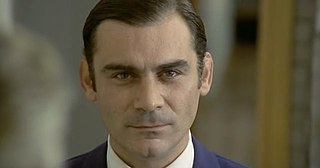
Gian Maria Volonté was an Italian actor and activist. He is best known for his roles in four Spaghetti Western films: Ramón Rojo in Sergio Leone's A Fistful of Dollars (1964), El Indio in Leone's For a Few Dollars More (1965), El Chuncho Munoz in Damiano Damiani's A Bullet for the General (1966) and Professor Brad Fletcher in Sergio Sollima's Face to Face (1967).

The Cat o' Nine Tails is a 1971 English-language Italian film directed by Dario Argento, adapted from a story by Dardano Sacchetti, Luigi Cozzi, and an uncredited Bryan Edgar Wallace. It stars Karl Malden, James Franciscus, and Catherine Spaak.
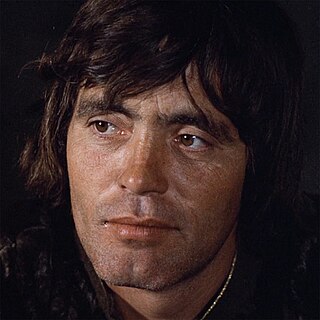
Franco Citti was an Italian actor, best known as one of the close collaborators of director Pier Paolo Pasolini. He came to fame for playing the title role in Pasolini's film Accattone, which brought him a BAFTA Award nomination for Best Foreign Actor. He subsequently starred in six of Pasolini's films, as well as 60 other film and television roles. His brother was the director and screenwriter Sergio Citti.

Italy competed at the 1936 Summer Olympics in Berlin, Germany. 244 competitors, 228 men and 16 women, took part in 99 events in 17 sports.
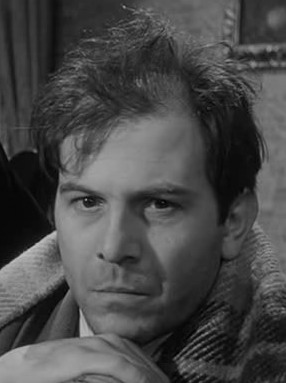
Enrico Maria Salerno was an Italian actor, voice actor and film director. He was also the voice of Clint Eastwood in the Italian version of Sergio Leone's Dollars Trilogy films, and the voice of Christ in The Gospel According to St. Matthew directed by Pier Paolo Pasolini.

Furio Scarpelli, also called Scarpelli, was an Italian screenwriter, famous for his collaboration on numerous commedia all'italiana films with Agenore Incrocci, forming the duo Age & Scarpelli.
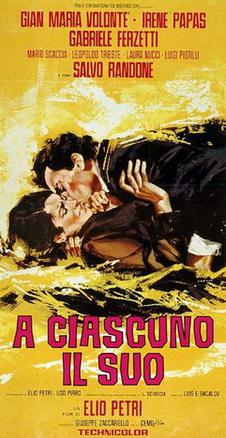
We Still Kill the Old Way is a 1967 Italian crime film directed by Elio Petri. It is based on the novel To Each His Own by Leonardo Sciascia.

Salvatore Randone, known professionally as Salvo Randone, was an Italian stage, film and television actor.

Todo modo, also known in English as One Way or Another, is a 1976 Italian satirical political drama film directed by Elio Petri starring Gian Maria Volonté and Marcello Mastroianni. It is loosely based on the novel of the same name by Leonardo Sciascia.

Property Is No Longer a Theft is a 1973 Italian-French comedy drama film directed by Elio Petri.

His Days Are Numbered, also titled Numbered Days, is a 1962 Italian drama film directed by Elio Petri.
Luigi Kuveiller was an Italian cinematographer, best known for his collaboration with film director Elio Petri.
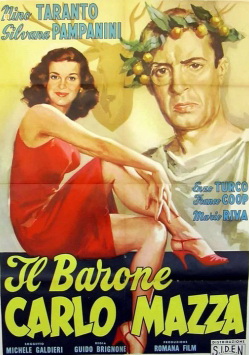
Baron Carlo Mazza is a 1948 Italian musical comedy film directed by Guido Brignone and starring Nino Taranto, Silvana Pampanini and Enzo Turco. The film's art direction was by Virgilio Marchi.

Good News is a 1979 Italian satirical comedy film written and directed by Elio Petri and starring Giancarlo Giannini. It was Petri's last film, produced by him and Giannini.
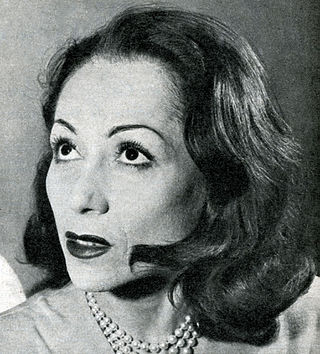
Eva Magni was an Italian stage and film actress. She was active between 1926 and the late 1970s.

Pergolesi is a 1932 Italian historical musical film directed by Guido Brignone and starring Elio Steiner, Dria Paola and Tina Lattanzi. It portrays the brief life of the eighteenth-century Italian composer Giovanni Battista Pergolesi. It was shot at the Cines Studios in Rome. A separate French-language version Les amours de Pergolèse was released the following year.

















